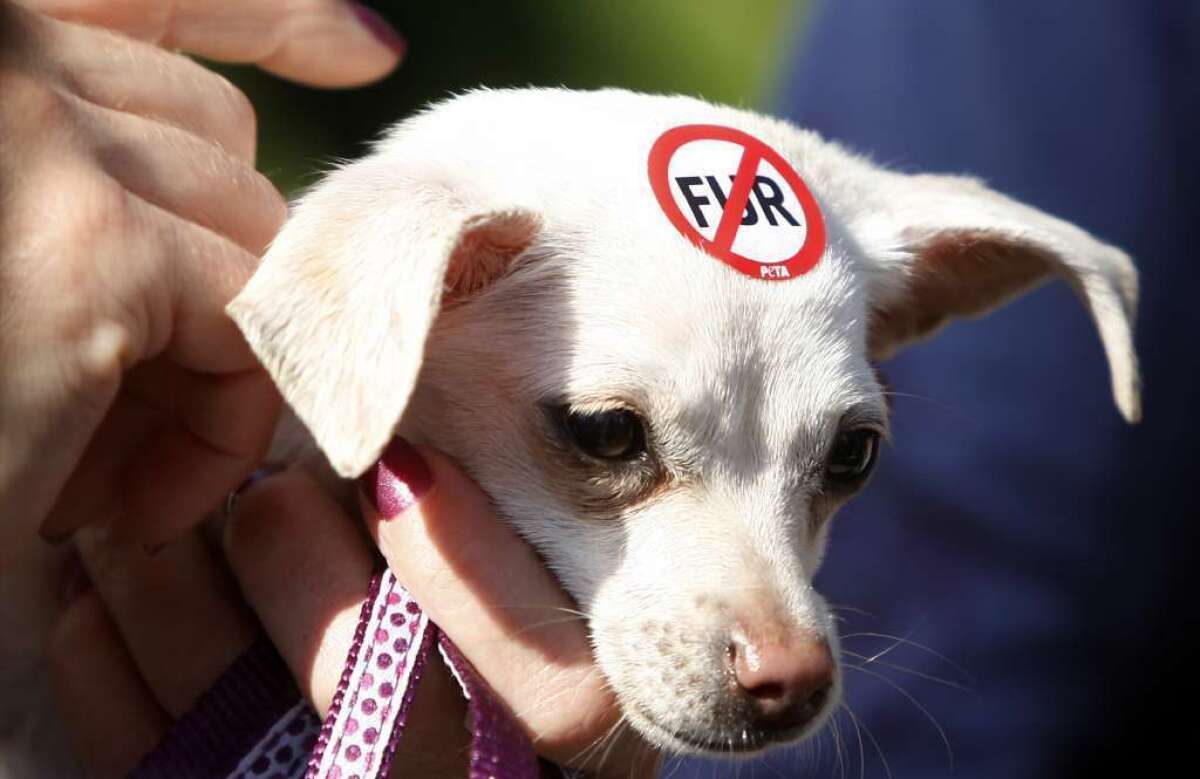Neiman Marcus settles charges it sold real fur labeled ‘faux’

- Share via
The Neiman Marcus Group Inc. and two other clothing retailers have agreed to settle complaints filed by the Federal Trade Commission that they misled consumers by marketing products as containing “faux fur” when they actually contained genuine animal fur.
The FTC had accused Neiman Marcus, DrJays.com Inc. and Cerritos company Eminent Inc. of violating the Fur Products Labeling Act.
Neiman Marcus, Dr. Jays and Eminent did not immediately respond to requests for comment from The Times.
[Updated at 11:51 a.m. March 19: DrJays issued a statement:
“There was no intention to mislead, and we extend apologies to those that feel misled. The intention of the law is to ensure that consumers are fully informed of the product they are purchasing, and that products are priced fairly. We believe strongly in such tenets, and in fact our accuracy in describing products is greater than 99.9%. We have since taken stricter measures company-wide to ensure that we raise this success rate further.”]
The FTC said that Neiman Marcus’ website misrepresented fur content for three products: a Burberry jacket, a Stuart Weitzman shoe and an Alice & Olivia Kyah coat. The misrepresentations were also made in its catalog and in ads mailed to consumers, the FTC said.
DrJays.com allegedly misrepresented the fur content in a Crown Holder jacket with a fur-lined hood, a Knoles & Carter vest and a United Face jacket with fur lining.
Eminent Inc.’s Revolve Clothing store failed to properly document fur content in four products: an Australia Luxe Collective Nordic Angel Short Boot, a Mark Jacobs Runway Roebling Coat, a Dakota Xan fur poncho and an Eryn Brinie vest, the FTC said.
In addition to mislabeling fur products as “faux fur,” Neiman Marcus was accused of misrepresenting that a rabbit fur product was made with mink fur and failed to disclose the country of origin for three other fur products, the FTC said.
Under consent orders that apply for 20 years, the retailers agreed to abide by the Fur Act and to never again knowingly market products as faux fur when they contain genuine fur.
ALSO:
Job growth accelerates as housing market strengthens
Rising housing prices are driving down affordability in California
Trade group: Housing demand exceeds builders’ ability to deliver
Follow Stuart Pfeifer on Twitter
More to Read
Inside the business of entertainment
The Wide Shot brings you news, analysis and insights on everything from streaming wars to production — and what it all means for the future.
You may occasionally receive promotional content from the Los Angeles Times.











